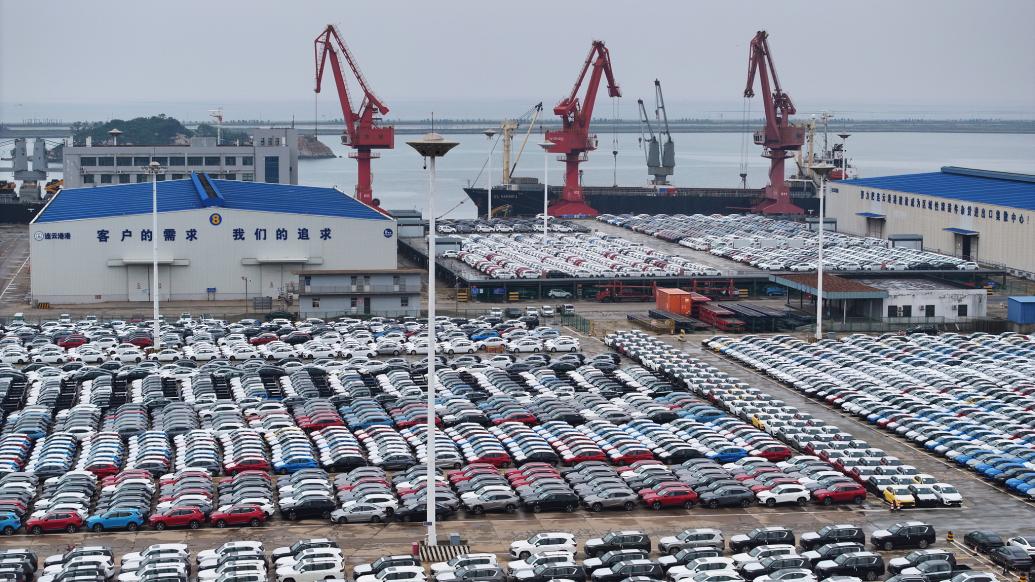The confusion in overseas EU markets
2024-08-19

The EU's anti subsidy investigation has had a significant impact on China's automobile exports. The export volume of new energy vehicles from China to the European Union in June this year decreased by about 30% year-on-year
According to data from the China Association of Automobile Manufacturers, in June of this year, the export volume of new energy vehicles in China, including pure electric and plug-in hybrid vehicles, decreased by 15.2% compared to May, but still increased by 12.3% year-on-year.
Generally speaking, the growth rate of China's new energy vehicle exports has been in the range of 30% -40% in recent years, but now it has slowed down to only over 10%. However, Cui Dongshu, Secretary General of the China Association of Automobile Manufacturers, stated that the pressure faced by China's new energy vehicle exports is temporary. However, it cannot be ignored that the EU's anti subsidy investigation has indeed had a significant impact on exports.
In June, the European Union confirmed that it would impose tariffs of up to 37.6% on electric vehicles imported from China, including Tesla and some European car brands produced in China, starting from July 5th.
According to data from the General Administration of Customs of China, the number of electric vehicles exported from China to the European Union in June was 27180, a decrease of about 25% from 36217 in May and a decrease of about 31% compared to the same period last year.
According to a report by the China Association of Automobile Manufacturers, exports of Chinese made Tesla to the European Union have dropped to their lowest level since the third quarter of 2022.
It is reported that the European Union is the largest export market for Tesla electric vehicles made in China. Data shows that Tesla's market share in Europe has declined from approximately 18% in 2023 to around 15.5%.
A relevant person from Junfeng Company told our reporter that Junfeng's EU exports have also been affected, and some countries have postponed their performance after signing contracts. Therefore, strengthening product cost and quality management is one of the current ways to cope; In the long run, Chinese manufacturers may seek cooperation with local manufacturers in the European Union to achieve product localization, which could be a way out.
According to data from the China Association of Automobile Manufacturers, in June of this year, the export volume of new energy vehicles in China, including pure electric and plug-in hybrid vehicles, decreased by 15.2% compared to May, but still increased by 12.3% year-on-year.
Generally speaking, the growth rate of China's new energy vehicle exports has been in the range of 30% -40% in recent years, but now it has slowed down to only over 10%. However, Cui Dongshu, Secretary General of the China Association of Automobile Manufacturers, stated that the pressure faced by China's new energy vehicle exports is temporary. However, it cannot be ignored that the EU's anti subsidy investigation has indeed had a significant impact on exports.
In June, the European Union confirmed that it would impose tariffs of up to 37.6% on electric vehicles imported from China, including Tesla and some European car brands produced in China, starting from July 5th.
According to data from the General Administration of Customs of China, the number of electric vehicles exported from China to the European Union in June was 27180, a decrease of about 25% from 36217 in May and a decrease of about 31% compared to the same period last year.
According to a report by the China Association of Automobile Manufacturers, exports of Chinese made Tesla to the European Union have dropped to their lowest level since the third quarter of 2022.
It is reported that the European Union is the largest export market for Tesla electric vehicles made in China. Data shows that Tesla's market share in Europe has declined from approximately 18% in 2023 to around 15.5%.
A relevant person from Junfeng Company told our reporter that Junfeng's EU exports have also been affected, and some countries have postponed their performance after signing contracts. Therefore, strengthening product cost and quality management is one of the current ways to cope; In the long run, Chinese manufacturers may seek cooperation with local manufacturers in the European Union to achieve product localization, which could be a way out.

